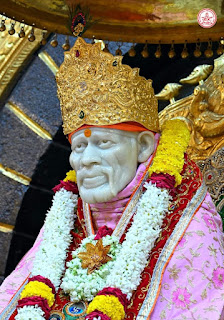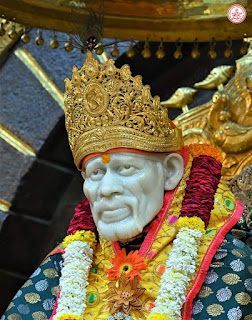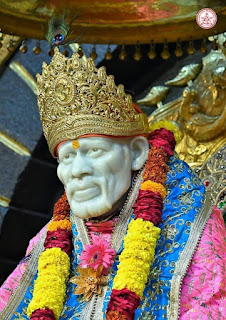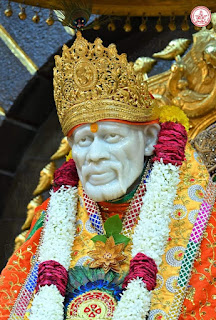Sai Baba: A Beacon of Universal Love and Spiritual Harmony
Sai Baba, also known as Shirdi Sai Baba, was a revered spiritual master who resided in the town of Shirdi, Maharashtra, India, during the late 19th and early 20th centuries. His teachings and life story continue to inspire millions of people around the world. One of the remarkable aspects of Sai Baba's teachings was his universal approach to spirituality, transcending the boundaries of any particular religion. Let us delve deeper into the life and philosophy of this extraordinary saint, who emphasized love, unity, and selfless service.
Embracing All Religions:
Born into a Muslim family, Sai Baba's life exemplified the essence of religious tolerance and inclusivity. He did not promote the worship of any specific deity or religious figure but encouraged his followers to have faith in their chosen deities and practice their respective rituals and prayers. Sai Baba believed that all religions ultimately led to the same divine truth and that the underlying principles of love, compassion, and service were common to all faiths. His teachings inspired people from diverse religious backgrounds, fostering harmony and unity among his devotees.
The Unity of All Religions:
Sai Baba's message revolved around the unity of all religions. He emphasized that the ultimate goal of spiritual seeking was to realize the divine essence that resides within every individual, regardless of their religious affiliation. Sai Baba taught that God is omnipresent and can be accessed through sincere devotion and selfless service. His teachings encouraged individuals to look beyond the external differences and embrace the underlying unity and interconnectedness of all beings.
Love and Compassion:
Central to Sai Baba's teachings was the power of love and compassion. He radiated boundless love towards all, treating everyone with equal respect and kindness. Sai Baba believed that love was the essence of spirituality and that serving others selflessly was a direct expression of divine love. His life was a living example of compassion in action, as he dedicated himself to the welfare of those in need, irrespective of caste, creed, or social status. Sai Baba's teachings continue to inspire people to cultivate love and compassion in their daily lives.
The Essence of Self-Realization:
For Sai Baba, spiritual growth and self-realization were paramount. He taught that the true purpose of life was to recognize one's own divinity and to realize the inherent oneness of all creation. Sai Baba emphasized the importance of personal transformation through ethical conduct, self-discipline, and the practice of meditation. His teachings encouraged individuals to go beyond religious dogma and rituals, focusing instead on the inner journey of self-discovery and the realization of one's true nature.
Legacy and Influence:
Sai Baba's teachings continue to resonate with millions of people worldwide, cutting across religious and cultural boundaries. His devotees have established numerous temples and organizations dedicated to spreading his message of love, unity, and service. Sai Baba's life and philosophy have inspired countless individuals to lead a life of compassion, selflessness, and spiritual seeking.
Conclusion:
Sai Baba remains an iconic figure, revered for his universal approach to spirituality and his emphasis on love, unity, and selfless service. His teachings serve as a guiding light, reminding us of the underlying unity of all religions and the importance of recognizing the divine essence within ourselves and others. In a world often divided by religious differences, Sai Baba's message of harmony and compassion continues to be a beacon of hope and inspiration, calling us to embrace the oneness of humanity and strive for a more inclusive and compassionate society.




Comments
Post a Comment